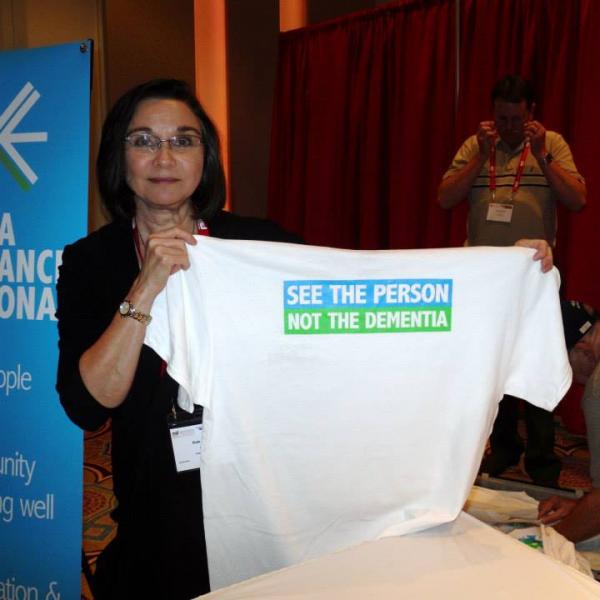-
Name: Kate Swaffer
-
Country: Australia
-
Diagnosed: aged 49
-
Diagnosis: Younger Onset Dementia
The university where she was based taught her to see the symptoms of dementia as disabilities simply needing strategies and support for her to continue studying and functioning. Whilst dementia is a terminal and progressive chronic illness, and the supports in place to allow her to maintain some independence are working for now, it is also important for people with dementia to not only get their end of life affairs in order whilst they still have a voice, but to live every day as if it is their last just in case it is.
Living in the moment, but also continuing to strive to achieve and create a life that is still meaningful, allows Kate to remain positive in spite of dementia, and to overcome the fear of the knowledge that eventually her capacity and function will very likely deteriorate to the point of not having independence.
Kate works as an advocate for people living with dementia, and is co-founder and current Chair of Dementia Alliance International, an advocacy and support group, of by and for people with dementia.

